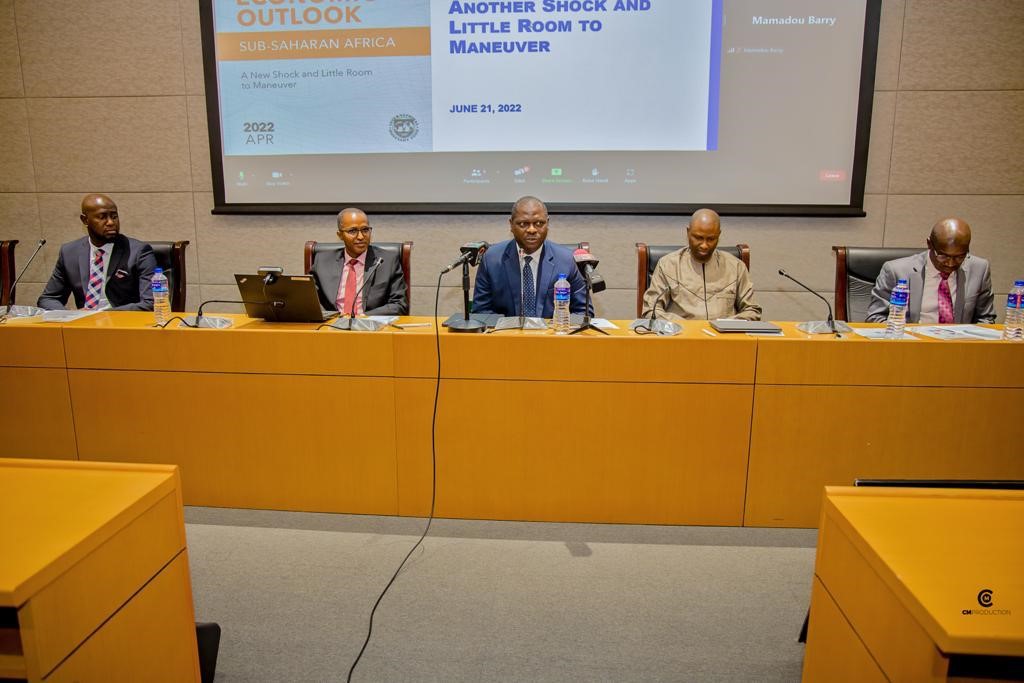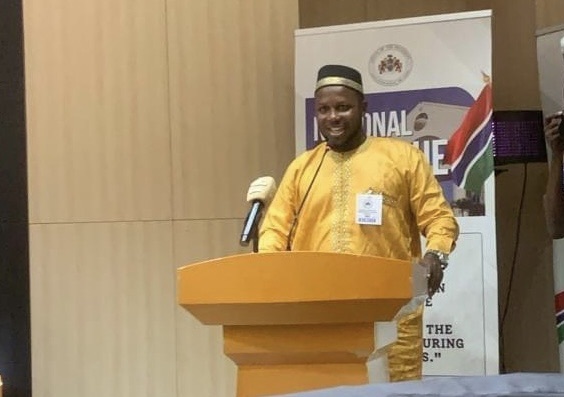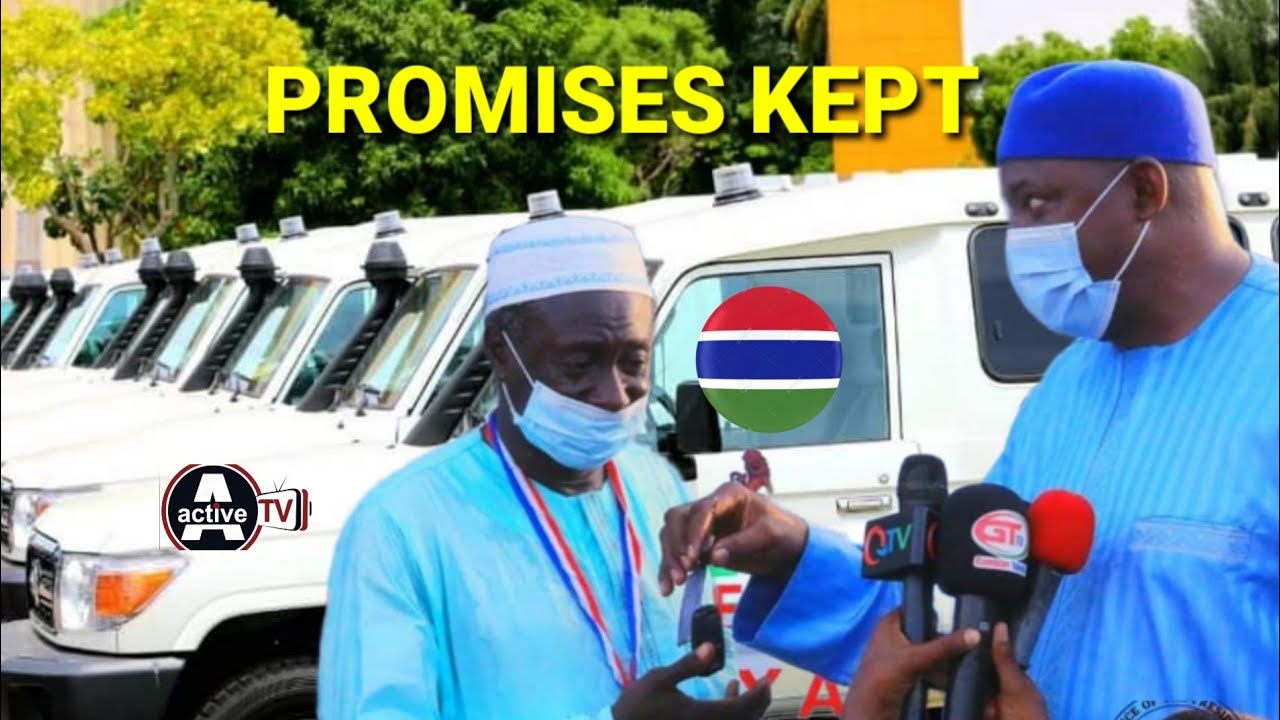By Adama Jallow
The International Monetary Fund (IMF) Resident Representative in the Gambia in collaboration with the Ministry of Finance and Economic Affairs and the Central Bank of The Gambia yesterday launched the In-country for the April 2022 Regional Economic Outlook for Sub-Saharan Africa in The Gambia.
The launching took place at the Sir Dawda Kairaba Jawara International Conference, Bijilo under the theme “A new Shock and Little Room to Maneuver” and it brought together IFM and senior government officials as well as students from the University of the Gambia and other institutions.
In his welcoming remarks, the Permanent Secretary of the Ministry of Finance and Economic Affairs, Mr. Abdoulie Jallow said after being severely hit by the COVID-19 pandemic, the Gambian economy appeared to be emerging from the collapse triggered by the pandemic and was beginning a subdued recovery with signs of improvement, especially in the Services and Industry sectors.
PS Jallow mentioned that with the global rollout of the vaccine, development partner support for The Gambia’s vaccination program, and the resilience of some economic sectors, growth was expected to rebound from 4.8 percent in 2021 to 6.8 percent in 2022 and moderate to 6.1 percent 2023.
And the emergence of the Russia-Ukraine conflict and its effects on global supply chains and commodity prices has dampened these prospects, causing growth projections to be revised downwards to 4.3 percent, 4.8 percent, and 5.0 percent in 2021, 2022, and 2023 respectively.
The Gambia’s economic activity, he said was hard hit during the pandemic with a breakdown in trade, tourism, and global supply chain disruptions, causing economic losses to both government and private economic operators. He added the pandemic negatively impacted revenue collection and significantly increased expenditure through mitigation and relief measures.
The Deputy Governor of the Central Bank, Paul J. Mendy revealed that as policymakers, they have been faced with a difficult balancing act of supporting economic recovery while fighting to maintain price stability with the anticipated strong recovery this year to being threatened by the Russian-Ukraine war by introducing complexities to an already delicate situation which has required them as policymakers to think outside the box and be proactive in their responses.
The Monetary Policy Committee of the Central Bank he said, had adopted an expansionary monetary policy stance since the start of the pandemic in 2020, with the intent of avoiding an economic recession in 2020 and to kick start the recovery process in 2021.
He said together with supportive policies by the government, they have succeeded in achieving this to a large extent, albeit challenging global economic conditions.
In 2020, he said, GDP grew by 0.6 percent and in 2021 it was estimated to have grown by 4.3 percent, adding that the economy is still performing under its potential while inflation has surged to double digits and supply shocks continue to persist, while the uncertain global economic environment has dampened consumer and business confidence in the domestic economy.
Mr. Mamadou Dioulde Barry, IMF Resident Representative in The Gambia, in his well-detailed presentations amongst others, focused on the spillover channels of the war in Ukraine, the uncertainty affecting regional outlook, the immediate policy priorities to maintain stability over the short-term, the essential economic reforms to create jobs and meet development objectives as well as the role of the international community in supporting recovery and building resilience.
Mr. Barry further highlighted short-term priority areas such as the reduction of debt vulnerability, the balance of inflation and growth as well as the management of exchange rate pressure.
The IMF Rep also presented on other three essential medium-term reforms for the enhancement of resilience and lift medium-term growth on energy transition, diversification and boosting private investment.





